October 4 stands as one of history’s most eventful days, witnessing the rise and fall of empires, groundbreaking discoveries, and moments that shaped our modern world across centuries of human achievement.
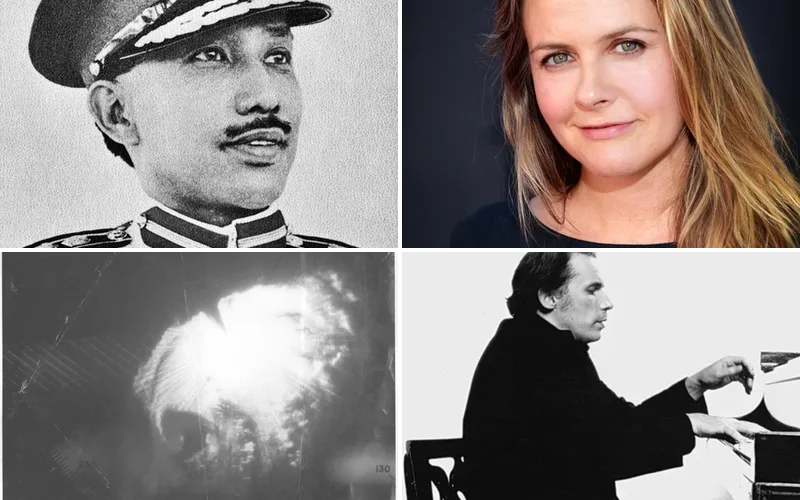
Politics and Government Events on October 4
1958 – The Current Constitution of France is Adopted
France adopted its Fifth Republic constitution on this date, establishing a new governmental framework. The constitution created a strong presidential system designed to provide political stability.
President Charles de Gaulle championed the new constitution as essential for France’s future governance. The document would guide French politics for decades, surviving numerous political crises and transitions.
1966 – Basutoland Becomes Independent from the United Kingdom and is Renamed Lesotho
The British protectorate of Basutoland gained independence and transformed into the Kingdom of Lesotho. King Moshoeshoe II assumed the throne of the newly sovereign nation.
The landlocked country faced immediate challenges as an enclave entirely surrounded by South Africa. Lesotho’s independence marked another step in the decolonization of southern Africa.
1967 – Omar Ali Saifuddien III of Brunei Abdicates in Favour of His Son

Sultan Omar Ali Saifuddien III voluntarily abdicated the throne of Brunei to his eldest son. The peaceful transition maintained the stability of the oil-rich Southeast Asian sultanate.
The former sultan continued to wield significant influence as a senior advisor to the new ruler. This abdication represented a rare voluntary transfer of absolute power in the modern era.
1992 – The Rome General Peace Accords End a 16-Year Civil War in Mozambique
Mozambique’s devastating civil war officially ended with the signing of comprehensive peace agreements in Rome. The accords brought together the government and RENAMO rebel forces after years of brutal conflict.
International mediators facilitated the negotiations that promised democratic elections and national reconciliation. The peace process would transform Mozambique from a war-torn nation into a stable democracy.
1993 – Tanks Bombard the Russian Parliament, While Demonstrators Against President Yeltsin Rally Outside
Russian President Boris Yeltsin ordered tanks to fire on the parliament building during a constitutional crisis. The dramatic confrontation marked the climax of a power struggle between executive and legislative branches.
Opposition lawmakers had barricaded themselves inside the White House building for weeks. The violent resolution of the crisis established presidential supremacy in Russia’s new political system.
Military and Naval History on October 4
1917 – World War I: The Battle of Broodseinde is Fought Between the British and German Armies in Flanders
British forces launched a major offensive against German positions in the Ypres Salient. The battle formed part of the larger Third Battle of Ypres, known as Passchendaele.
Allied troops achieved significant tactical success, advancing across heavily fortified German lines. The victory came at enormous cost, with thousands of casualties in the muddy Flanders battlefield.
1918 – World War I: An Explosion Kills More Than 100 People and Destroys a Shell Loading Plant in New Jersey

A massive explosion devastated the Morgan Shell Loading Plant in Sayreville, New Jersey. The blast killed over 100 workers and destroyed the facility producing artillery shells for the war effort.
The disaster highlighted the dangerous conditions faced by munitions workers during World War I. Investigations revealed safety violations that contributed to the catastrophic industrial accident.
1925 – Great Syrian Revolt: Rebels Led by Fawzi al-Qawuqji Captured Hama from the French Mandate of Syria
Syrian nationalist forces successfully seized control of the strategic city of Hama from French colonial authorities. The victory demonstrated growing resistance to French mandatory rule throughout Syria.
Fawzi al-Qawuqji emerged as a key military leader in the anti-colonial struggle. The capture of Hama inspired further uprisings against French control across the region.
1993 – Battle of Mogadishu Occurs Killing 18 U.S. Special Forces, Two UN Peacekeepers and at Least 600 Somalian Militia Men and Civilians
American special forces engaged in fierce urban combat with Somali militia in Mogadishu. The battle lasted 15 hours as U.S. troops attempted to rescue downed helicopter crews.
The intense fighting shocked the American public and led to the withdrawal of U.S. forces from Somalia. The battle became known as “Black Hawk Down” and changed American attitudes toward humanitarian interventions.
Science and Discovery Milestones on October 4
1957 – Sputnik 1 Becomes the First Artificial Satellite to Orbit the Earth

The Soviet Union launched Sputnik 1, humanity’s first artificial satellite, into Earth orbit. The basketball-sized spacecraft transmitted radio signals that could be heard worldwide.
The launch stunned the world and marked the beginning of the Space Age. Sputnik’s success demonstrated Soviet technological prowess and sparked the international space race.
1985 – The Free Software Foundation is Founded
Richard Stallman established the Free Software Foundation to promote computer users’ rights to use, study, copy, and modify software. The organization championed the concept of free software as a matter of liberty.
The foundation’s work laid the groundwork for the modern open-source software movement. Its principles would influence countless programmers and reshape the entire software industry.
2004 – SpaceShipOne Wins the Ansari X Prize for Private Spaceflight
SpaceShipOne completed its second required flight within two weeks, winning the $10 million Ansari X Prize. The privately-funded spacecraft achieved suborbital flight and returned safely to Earth.
The achievement marked a milestone in commercial space development and private aerospace engineering. SpaceShipOne’s success inspired numerous private companies to pursue space tourism and exploration.
2006 – WikiLeaks is Launched
Julian Assange and collaborators launched WikiLeaks, a platform for publishing classified documents and sensitive information. The website promised to provide secure channels for whistleblowers to expose wrongdoing.
WikiLeaks revolutionized journalism and government transparency by making classified materials widely accessible. The platform would later release numerous high-profile document leaks that influenced global politics.
Cultural and Arts Events on October 4
1927 – Gutzon Borglum Begins Sculpting Mount Rushmore
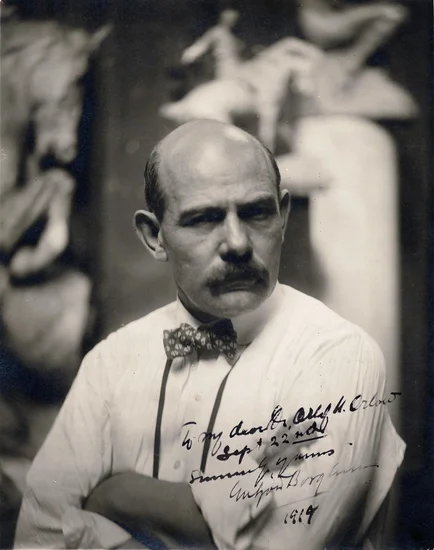
Sculptor Gutzon Borglum commenced work on the massive Mount Rushmore National Memorial in South Dakota. The ambitious project would carve four presidential faces into the granite mountainside.
Borglum’s vision required innovative techniques and specialized equipment to create the colossal sculptures. The monument would take 14 years to complete and become an iconic symbol of American democracy.
1941 – Norman Rockwell’s Willie Gillis Character Debuts on the Cover of The Saturday Evening Post
Norman Rockwell introduced his fictional character Willie Gillis on the magazine’s cover. The young soldier would become a beloved symbol of American military service during World War II.
Rockwell’s Willie Gillis series captured the experiences of ordinary servicemen with humor and humanity. The character appeared in eleven Saturday Evening Post covers throughout the war years.
1991 – The Protocol on Environmental Protection to the Antarctic Treaty is Opened for Signature
International negotiators completed the Environmental Protocol to the Antarctic Treaty, establishing comprehensive environmental protection measures. The agreement designated Antarctica as a natural reserve devoted to peace and science.
The protocol banned mining activities and strengthened environmental impact assessments for all Antarctic activities. This landmark agreement demonstrated global commitment to preserving Earth’s last pristine wilderness.
Religious and Social Events on October 4
1920 – The Mannerheim League for Child Welfare, a Finnish Non-Governmental Organization, is Founded on the Initiative of Sophie Mannerheim
Sophie Mannerheim established Finland’s premier child welfare organization to protect children’s rights and well-being. The league addressed pressing social issues affecting Finnish families and children.
The organization pioneered comprehensive child protection services and advocacy programs throughout Finland. Its work would influence child welfare policies and practices for generations of Finnish families.
1962 – Pope Paul VI Begins the First Papal Visit to the Americas

Pope Paul VI embarked on a historic journey to the Americas, marking the first papal visit to the New World. The pontiff traveled to multiple countries, strengthening Catholic Church ties throughout the hemisphere.
The papal visit demonstrated the Vatican’s commitment to engaging with Catholics worldwide. Paul VI’s journey helped modernize the Church’s approach to international relations and pastoral care.
1936 – The Metropolitan Police and Various Anti-Fascist Organizations Violently Clash in the Battle of Cable Street
London’s East End erupted in violence as anti-fascist protesters blocked a British Union of Fascists march. Thousands of demonstrators confronted police and fascist supporters in the streets.
The confrontation became a symbol of popular resistance to fascism in Britain. The events led to new restrictions on political marches and demonstrated growing opposition to extremist movements.
Business and Economic Events on October 4
1997 – The Second Largest Cash Robbery in U.S. History Occurs in North Carolina
Thieves executed a sophisticated heist at a Loomis Fargo facility, stealing over $17 million in cash. The robbery shocked the security industry and exposed vulnerabilities in cash transport operations.
The elaborate scheme involved inside knowledge and careful planning over several months. Most of the perpetrators were eventually caught, but the case highlighted weaknesses in financial security systems.
1983 – Richard Noble Sets a New Land Speed Record of 633.468 Miles Per Hour at the Black Rock Desert in Nevada

British engineer Richard Noble achieved a new world land speed record in his jet-powered car Thrust2. The record-breaking run took place on the flat desert surface of Nevada’s Black Rock Desert.
Noble’s achievement represented the culmination of years of engineering innovation and testing. The record stood for over a decade and inspired future generations of land speed record attempts.
2010 – The Ajka Plant Accident in Hungary Releases a Million Cubic Metres of Liquid Alumina Sludge
A containment wall collapsed at an aluminum plant, releasing toxic red sludge across the Hungarian countryside. The environmental disaster killed nine people and contaminated major rivers and agricultural land.
The accident highlighted serious deficiencies in industrial safety regulations and environmental monitoring. Hungary faced massive cleanup costs and long-term ecological damage from the toxic spill.
Transportation and Infrastructure on October 4
1960 – An Airliner Crashes on Takeoff from Boston’s Logan International Airport, Killing 62 People

Eastern Air Lines Flight 375 crashed during takeoff from Logan International Airport in Boston. The Lockheed L-188 Electra experienced engine failure and crashed into nearby waters.
The disaster prompted extensive investigations into aircraft safety and engine reliability. The crash led to important improvements in aviation safety procedures and aircraft design standards.
1992 – El Al Flight 1862 Crashes Into Two Apartment Buildings in Amsterdam, Killing 43 Including 39 on the Ground

An Israeli cargo plane lost control and crashed into residential buildings in Amsterdam’s Bijlmermeer district. The Boeing 747 freighter had experienced engine problems shortly after takeoff.
The crash raised questions about cargo aircraft safety and flight paths over populated areas. Investigations revealed mechanical failures that led to improved maintenance procedures for cargo planes.
2001 – Siberia Airlines Flight 1812 Crashes After Being Struck by an Errant Ukrainian Missile

A Ukrainian surface-to-air missile accidentally shot down a Russian passenger aircraft over the Black Sea. All 78 people aboard the flight from Tel Aviv to Novosibirsk perished in the tragedy.
The incident occurred during Ukrainian military exercises when the missile system malfunctioned. Ukraine accepted responsibility and paid compensation to victims’ families after international pressure.
Sports and Recreation on October 4
1963 – Hurricane Flora Kills 6,000 in Cuba and Haiti

Hurricane Flora devastated the Caribbean islands with catastrophic winds and flooding. The powerful storm caused unprecedented destruction across Cuba and Haiti, displacing hundreds of thousands of people.
The hurricane’s slow movement prolonged the devastation, with some areas experiencing days of continuous battering. Flora became one of the deadliest Atlantic hurricanes in recorded history.
2003 – The Maxim Restaurant Suicide Bombing in Israel Kills Twenty-One Israelis, Both Jews and Arabs
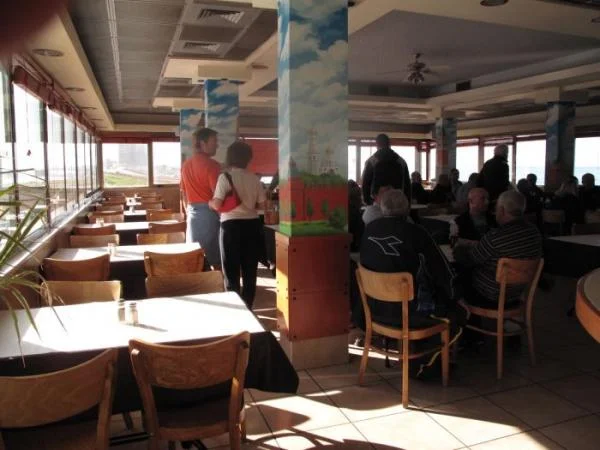
A Palestinian suicide bomber attacked the Maxim restaurant in Haifa, killing 21 people and wounding dozens more. The attack targeted a mixed Arab-Jewish establishment, demonstrating the indiscriminate nature of the violence.
The bombing occurred during the Second Intifada and sparked renewed calls for peace negotiations. The tragedy highlighted the devastating human cost of the ongoing Israeli-Palestinian conflict.
2017 – Joint Nigerien-American Special Forces are Ambushed by Islamic State Militants Outside the Village of Tongo Tongo

Islamic State fighters ambushed a joint patrol of American and Nigerien forces in Niger. The attack killed four U.S. soldiers and several Nigerien troops in a remote border region.
The ambush exposed the expanding presence of extremist groups in West Africa. The incident led to increased scrutiny of U.S. military operations across the Sahel region.
Notable Births on October 4
1923 – Charlton Heston, American Actor, Director and Gun Rights Activist
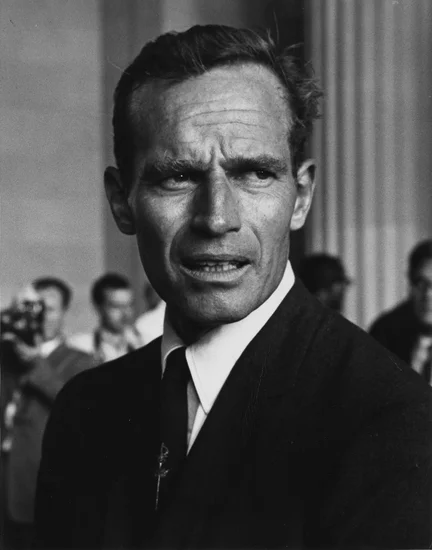
Charlton Heston was born in Evanston, Illinois, destined to become one of Hollywood’s most commanding leading men. His powerful voice and imposing presence made him perfect for epic historical dramas.
Heston would win an Academy Award for Ben-Hur and star in classics like The Ten Commandments. Later in life, he became a prominent conservative activist and president of the National Rifle Association.
1946 – Susan Sarandon, American Actress and Activist
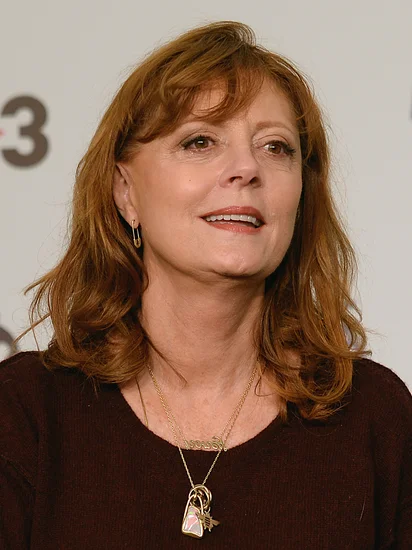
Susan Sarandon entered the world in New York City, beginning a life that would span acclaimed acting and passionate activism. Her intelligence and versatility made her one of cinema’s most respected performers.
Sarandon would earn multiple Oscar nominations and win for Dead Man Walking. She consistently used her platform to advocate for social justice causes throughout her career.
1956 – Christoph Waltz, Austrian-German Actor
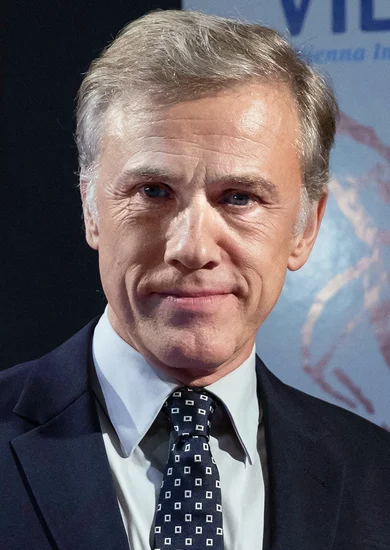
Christoph Waltz was born in Vienna, Austria, to a family deeply rooted in theatrical tradition. His multilingual abilities and sophisticated acting style would eventually captivate international audiences.
Waltz gained worldwide recognition for his performances in Quentin Tarantino films, winning two Academy Awards. His portrayal of complex villains and characters showcased his remarkable range and precision.
1941 – Anne Rice, American Author

Anne Rice was born in New Orleans, Louisiana, in a city that would profoundly influence her gothic imagination. Her southern upbringing immersed her in the atmospheric settings that would define her novels.
Rice revolutionized vampire fiction with her Interview with the Vampire series, creating sympathetic supernatural characters. Her work transformed horror literature and influenced countless writers in the genre.
1976 – Alicia Silverstone, American Actress, Producer, and Author

Alicia Silverstone was born in San Francisco, California, destined to become a defining actress of the 1990s. Her comedic timing and relatable charm made her a teen movie icon.
Silverstone achieved fame in Clueless and became a prominent advocate for animal rights and environmental causes. Her activism has remained as passionate as her entertainment career throughout her life.
1988 – Derrick Rose, American Basketball Player

Derrick Rose was born in Chicago, Illinois, growing up in a basketball-obsessed city that shaped his athletic dreams. His explosive playing style and determination made him a local hero from an early age.
Rose became the youngest MVP in NBA history while playing for his hometown Chicago Bulls. Despite injuries, he remained one of basketball’s most beloved and resilient players.
1973 – Dakota Johnson, American Actress

Dakota Johnson was born in Austin, Texas, into a family of accomplished actors including parents Don Johnson and Melanie Griffith. Her Hollywood pedigree provided early exposure to the entertainment industry.
Johnson gained international recognition starring in the Fifty Shades film series and later acclaimed independent films. Her performances demonstrated both commercial appeal and serious dramatic capabilities.
Notable Deaths on October 4
1904 – Frédéric Auguste Bartholdi, French Sculptor, Designed the Statue of Liberty

Frédéric Auguste Bartholdi died in Paris, leaving behind the world’s most famous symbol of freedom and democracy. The French sculptor had dedicated years to creating the monumental Statue of Liberty.
Bartholdi’s masterpiece stood as a beacon of hope for millions of immigrants entering New York Harbor. His artistic vision transformed a diplomatic gift into an enduring symbol of American ideals.
1947 – Max Planck, German Physicist and Academic, Nobel Prize Laureate

Max Planck died in Göttingen, Germany, after revolutionizing physics with his quantum theory discoveries. The German physicist had fundamentally changed scientific understanding of energy and matter.
Planck’s work laid the foundation for quantum mechanics and earned him the Nobel Prize in Physics. His theoretical breakthroughs enabled countless technological advances in the modern world.
1970 – Janis Joplin, American Singer-Songwriter

Janis Joplin died in Los Angeles at age 27, joining the tragic “27 Club” of musicians who died young. The powerful vocalist had defined the counterculture movement with her raw, emotional performances.
Joplin’s blues-influenced rock style and uninhibited stage presence made her a cultural icon. Her death from a drug overdose shocked the music world and ended a brilliant but troubled career.
1982 – Glenn Gould, Canadian Pianist and Conductor

Glenn Gould died in Toronto after suffering a stroke, ending the career of one of classical music’s most innovative interpreters. The Canadian pianist had redefined Bach performance with his unique artistic vision.
Gould’s eccentric personality and perfectionist approach to recording created legendary interpretations of classical repertoire. His intellectual approach to music influenced generations of classical musicians worldwide.
1989 – Graham Chapman, English Actor and Screenwriter

Graham Chapman died in London from cancer, leaving behind a legacy of groundbreaking comedy with Monty Python. The British actor and writer had helped create some of television’s most influential humor.
Chapman’s work with Monty Python’s Flying Circus revolutionized comedy and influenced countless comedians. His death marked the end of an era for British alternative comedy.
2004 – Gordon Cooper, American Colonel, Engineer, and Astronaut
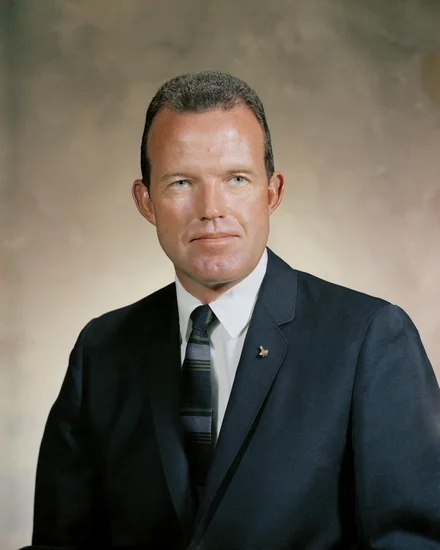
Gordon Cooper died in Ventura, California, after a pioneering career as one of America’s original Mercury astronauts. The test pilot had pushed the boundaries of human spaceflight in the early space program.
Cooper’s final Mercury mission demonstrated American capability for long-duration spaceflight. His contributions to space exploration helped establish the United States as a major space power.
Holidays and Observances on October 4
World Animal Day

World Animal Day raises global awareness about animal welfare and rights on October 4th. The international observance encourages people to improve standards of animal care worldwide.
Animal welfare organizations use this day to promote compassionate treatment of all creatures. The holiday coincides with the feast day of Saint Francis of Assisi, patron saint of animals.
Independence Day, Celebrates the Independence of Lesotho from the United Kingdom in 1966
Lesotho celebrates its independence from British colonial rule with national festivities and cultural events. The mountain kingdom commemorates its emergence as a sovereign nation in southern Africa.
Citizens participate in traditional ceremonies and modern celebrations throughout the country. The holiday reinforces Lesotho’s cultural identity and independence from its powerful neighbor South Africa.
Day of Peace and Reconciliation (Mozambique)
Mozambique observes this day to commemorate the end of its devastating civil war in 1992. The holiday promotes national unity and healing from the conflicts that divided the country.
Communities across Mozambique participate in peace ceremonies and reconciliation activities. The observance reinforces the importance of maintaining peace and democratic governance in the nation.
Cinnamon Roll Day (Sweden and Finland)
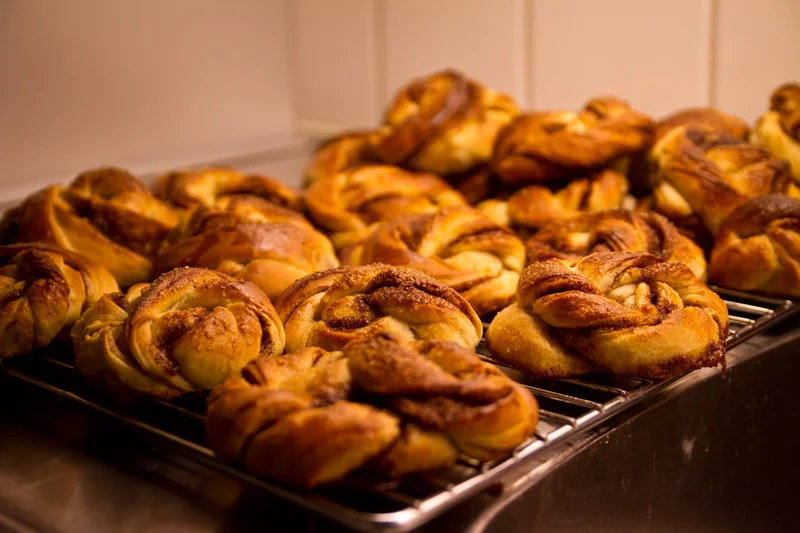
Sweden and Finland celebrate their beloved cinnamon roll pastries with special bakery offerings and cultural events. The Nordic countries honor their traditional baking heritage and shared culinary traditions.
Bakeries throughout both nations create special cinnamon roll varieties and host community celebrations. The holiday reflects the important role of traditional pastries in Scandinavian culture and daily life.
